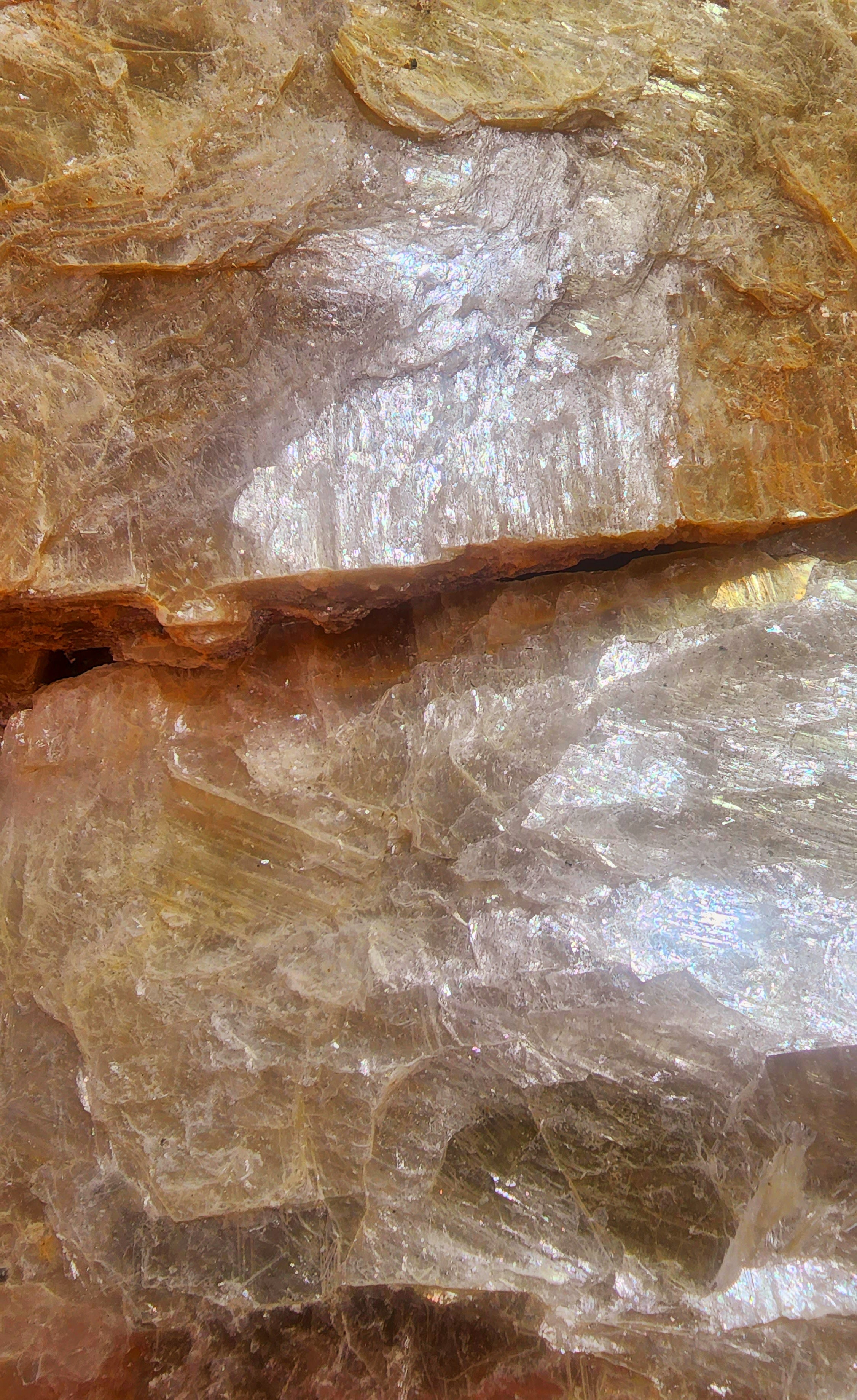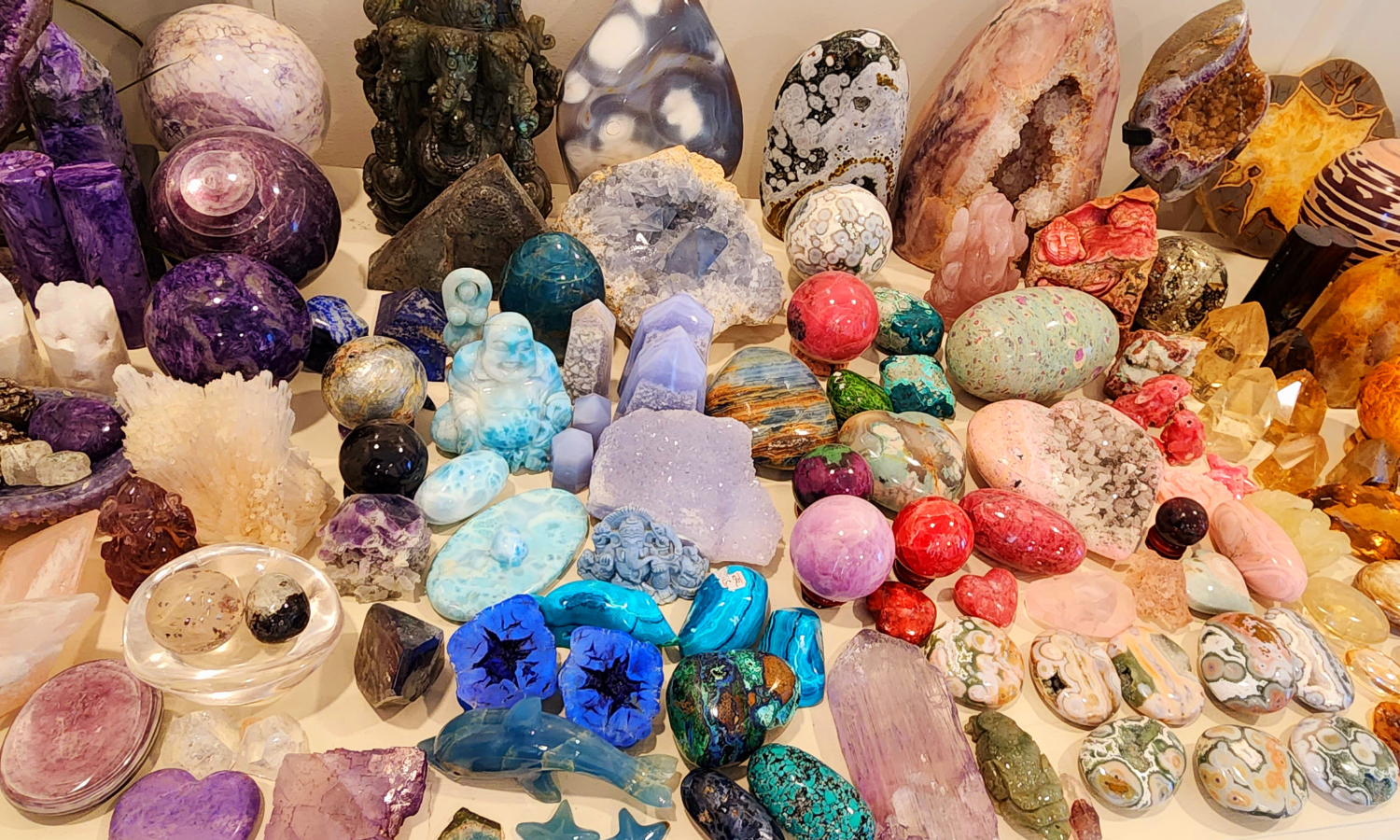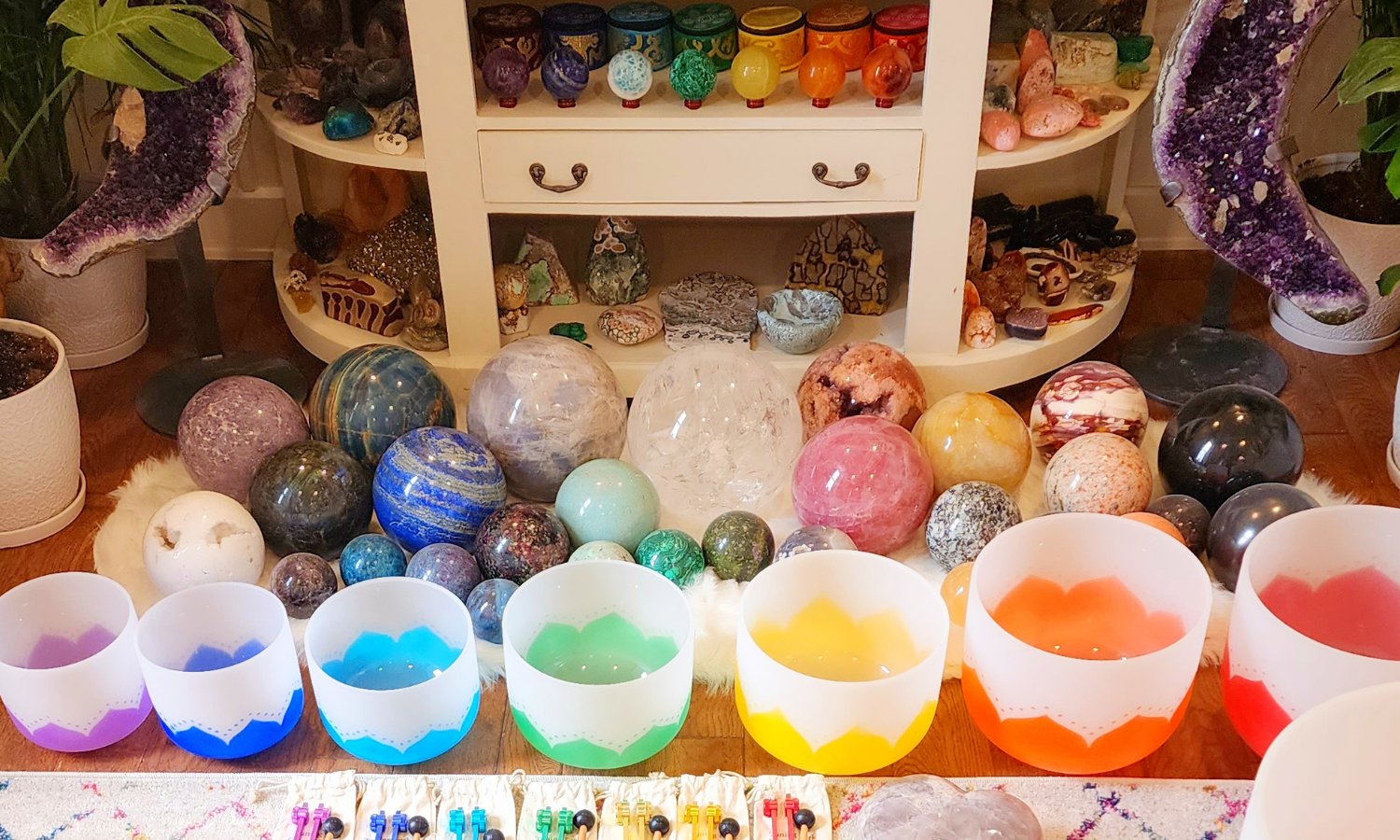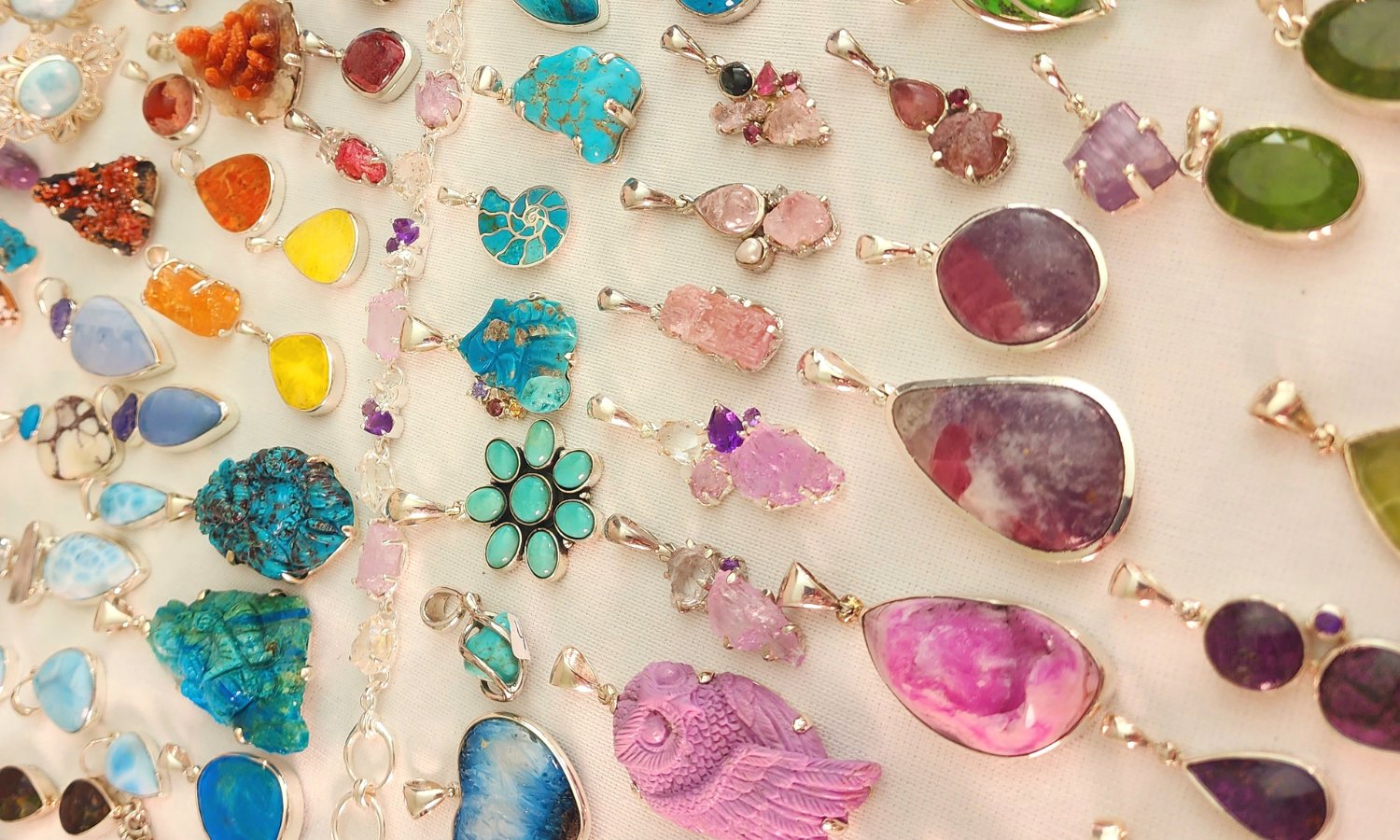
Muscovite
Muscovite is a member of the mica group of minerals, characterized by its flexible, sheet-like structure . It is made primarily of aluminum silicate and potassium (KAl₂(Si₆Al₂O₁₈(OH)₂). Its thin, transparent sheets are highly reflective, creating a beautiful metallic sheen that has made it a favorite among collectors. The mineral’s appearance can range from a pale gold to silvery-gray or even greenish, depending on its exact chemical composition. Muscovite is known for its perfect cleavage, meaning it can be split into thin, flexible sheets. This property gives Muscovite a smooth, shiny finish and makes it highly useful in a wide range of applications, from insulation to cosmetics.
The name "Muscovite" originates from "Muscovy" the older Russian name for the province of Moscow. Early European mineralogists noticed that this shiny, flaky mineral was abundant in Russia, especially in the Ural Mountains and Siberia, where it was commonly used for windows and insulation. Muscovite is found in various ares throughout the globe, particularly where metamorphic rocks are abundant. Notable localities for muscovite include the United States, Russia, Brazil and India.
Muscovite forms in metamorphic rocks, primarily in environments with high heat and pressure. It is usually found in granites, schists, and gneisses, and can also form as an alteration product of feldspar under high-temperature conditions. The mineral is commonly associated with other silicate minerals such as quartz, feldspar, and biotite. Muscovite can also occur as an accessory mineral in pegmatites, which are coarse-grained igneous rocks formed from the slow crystallization of magma. These pegmatites often contain large crystals, including Muscovite.
In ancient times, particularly in Russia, Muscovite was used as a form of glass for windows called "Isinglass". The thin, flexible sheets were employed in stoves, lamps, and lanterns because of their resistance to heat and their ability to allow light through it. The shimmering quality of muscovite led to its use in cosmetics and paintings, particularly in ancient Egyptian and Roman cultures, where it was ground into a fine powder to create a lustrous finish. Today, Muscovite is used in electrical insulators and high-temperature applications, such as electrical components and industrial machinery.
Muscovite is an enchanting gem of manifestation, spiritual awakening and harmony. Its shimmering, translucent surface encourages clear thinking and the ability to view situations from a higher perspective. Muscovite’s energy helps you connect with your Higher Self, bringing focus and direction to your thoughts. A great stone for shadow work, Muscovite assists in seeing your own mental patterns and beliefs more clearly, enabling you to release confusion and embrace a higher perspective.
Muscovite is particularly useful for a spiritual awakening and deepening your connection to the divine. Its high-vibrational energy enhances meditation, allowing for direct access to spiritual wisdom and intuitive guidance. Muscovite acts as a bridge between the material and spirit world, supporting you as you explore higher consciousness and spirit guides. Its harmonizing energy has a healing effect for relationships and is the perfect stone to keep in any room to promote peace and harmony. Muscovite also supports manifestation by bringing clarity to your desires and dreams. Its auspicious energy attracts positive encounters and an abundance of opportunities aligned with your passions. Muscovite is the perfect stone for any and all manifestation practices.





































